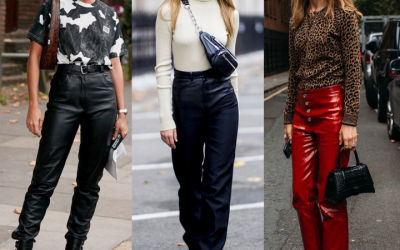There is a dark side to the fast fashion industry that most of us know about but few of us care to confront honestly.
Many consumers are under the impression that they are getting a good deal when they buy clothes from fast fashion brands, but they don’t realize the human cost of those low prices.
Behind the seams of those cheap clothes is an often (intentionally) hidden reality of labor practices and human rights abuses. In this post, we explore the dark side of fast fashion and discuss some ways to help support ethical fashion brands.
What Are Human Rights And How Do They Relate To The Fashion Industry?
Human rights for laborers have been a hotly debated topic since at least the Middle Ages when the organizers of the Peasant’s Revolt demanded better working conditions.
But our goal here is not to engage in an academic discussion of human rights and what they mean. Instead, we want to take a look at the modern garment industry specifically and the fundamental human rights it sometimes chooses to ignore.
The most common human rights violations that the garment industry is often accused of include:
- The use of child labor,
- low and unfair wages,
- unsafe working conditions; and
- labor trafficking and forced labor
These are just a few examples; there are many other ways that garment workers can be mistreated.
A lot of that mistreatment is a consequence of the basic building blocks of the fast fashion model. The fast fashion industry has succeeded in generating an inconceivable demand for new designs, styles, and clothing trends.
That demand is largely driven by a constantly evolving offering. The most successful fast-fashion brands are able to produce a seemingly endless series of collections throughout the year.
And, to be fair, it’s a business model that generates massive profits.
But, meeting such a high demand for garment production is almost impossible while at the same time fully respecting workers’ rights. Critics point out that there simply wouldn’t be enough labor to support the production of cheap clothing, were it not for shady practices by some apparel companies.
How Fast Fashion Affects Human Rights Around The World
Now, we’re not suggesting that fast fashion brands are the only ones who violate human rights.
In fact, it’s hard to find any brand that sells clothes in bulk at affordable prices without a dubious track record of labor practices somewhere along its supply chain.
But poor working conditions and low wages have become so common in garment factories around the world that they’ve nearly come to be expected as part of doing business in this industry. And some companies seem more willing than others to turn a blind eye toward human rights abuses in their supply chains. Here are just a few examples:
In fact, it’s hard to find any brand that sells clothes in bulk at affordable prices without a dubious track record of labor practices somewhere along its supply chain.
Human Rights Watch has reported on forced labor – including physical abuse and threats against workers – at factories in many developing countries.
Some of those factories supply clothing to U.S. retailers, including Walmart and Target. (Of course, the brands that sell through these stores are also implicated.)
The collapse of a factory in Bangladesh killed more than 1000 people. Safety standards were so poor at this garment facility for international fashion corporations who used it to manufacture their clothes cheaply that they led to the building’s collapse.
And although most Americans likely don’t know much about the details of the incident or how it happened, we should be aware that our desire for affordable clothing contributed directly to keeping this factory open despite its appalling conditions.
This is just one example of many such incidents – some less severe but equally disturbing – where human rights have been disregarded by apparel manufacturers and us consumers.
The Consequences Of Violating Human Rights In The Fashion Industry
Human rights violations at clothing factories can be a serious problem for the companies that rely on those facilities to manufacture their goods.
But many companies simply see it in terms of a cost-benefit analysis. If the cost of improving working conditions will produce a decrease in shareholder value, such options are often ignored.
Even if they haven’t established any direct relationships with these factories, apparel brands are still ultimately responsible for all of their suppliers’ actions and inactions, including how they treat workers.
Unfortunately, it’s not always clear when worker mistreatment has occurred because businesses often have complex supply chains consisting of many different subcontractors and other partners who may or may not share the same values as the main brand.
So even though most major apparel brands claim to support human rights and ethical labor practices, there is little oversight by outside agencies that might otherwise hold them accountable for violating those standards.
In many nations throughout the world, factory owners and managers have been known to fire pregnant employees or refuse maternity leave, retaliate against employees who join or form unions, compel garment workers to work overtime and turn a blind eye when male bosses or workers sexually harass female staff.
Ways We Can All Help Promote Human Rights In The Fashion Industry
There are a few things we can all do to help promote human rights in the fashion industry, even if we’re not directly involved in the manufacturing process.
For starters, we can be more mindful of where our clothes come from and what kind of labor went into making them.
We can also support organizations that work to improve labor conditions and protect workers’ rights around the world.
Moreover, we can call on brands and retailers to do more to ensure that their products are made under safe, fair, and humane working conditions. By making public appeals for brands to release supply chain data, publicly disclose business partners, and engage with human rights organizations to improve their transparency, we can at least create an environment in which fast fashion brands feel like a change to their practices might be necessary.
Another way to help combat the human rights abuses in the fast fashion industry is to be more conscious of where you’re buying your clothes. There are a number of ethical fashion brands that produce high-quality clothing while respecting workers’ rights.
And, you can support ethical fashion is by raising awareness about these issues. Share this article, or others like it, with your friends and family. Let them know why it’s important to think about the origins of our clothes before we purchase them.
A Stitch In Time Saves Lives
It’s not always easy to know what it takes to produce our clothes. In fact, often it’s very difficult to find out the truth about the clothing industry. But, by raising awareness and speaking out against injustice, we can create positive change in this space.
We all have the power to make a change by voting with our wallets and choosing ethical brands that don’t rely on sweatshops, child labor, or other forms of exploitation.
Together, we can make a difference in how garment workers are treated around the world.




